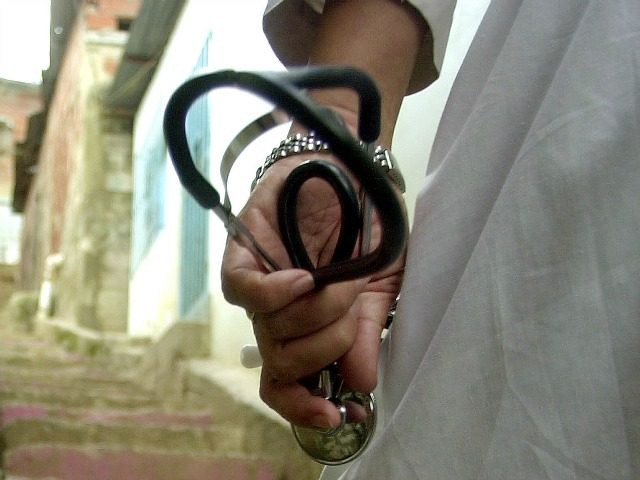Cuba’s state newspaper Granma published a report Wednesday applauding the communist nation’s “higher education system” just days after Amnesty International condemned the regime for censoring the internet and punishing students who use “unauthorized” sources in reports.
The Granma report highlights major changes to the nation’s higher education curricula without quite describing what is coming, noting that 246,000 students will begin classes in Cuban universities this September, or 2.1 percent of the country. In comparison, over 20 million Americans—out of 323 million—will be attending college in September, about 6.3 percent of the population. It promises “superior results in the accreditation of plans, programs, and institutions” as well as new equipment for science and technology studies to create “a good human being … with social commitment determining their lives and daily deeds.”
While the Amnesty Global Insights report published this week parrots the usual Cuban government (and United Nations) line that the communist regime made “historical advances in education” by forcing children to learn to read using hymns to communist murderers like Ernesto “Che” Guevara, it acknowledges that its repressive rules in preventing Cubans from freely using the internet have hurt its education system, telling the story of a teacher fired after a superior found that her students were being allowed to visit Wikipedia, a website not regulated by the Cuban government.
Cuba’s educational problems go far beyond its internet woes. A 2013 report by the Miami-based AmericaTeVe found textbooks meant for children as young as five teaching phrases like “patria o muerte”—fatherland or death—next to the friendly faces of dictator Raúl Castro, Guevara, and, of course, the leader of the Revolution, Fidel Castro. Fourth graders learning how to draft letters are presented with fictional letters from “militants in the Communist Party.”
As Cuban Exile Quarter, which highlighted the Amnesty report, notes, higher education programs are also of low quality. “Foreign students who studied in Cuba have not been sufficiently prepared to pass their medical license exams,” the site notes. “In Pakistan, Cuban trained doctors are demanding an exemption from medical licensing exams to practice medicine there.”
Even small countries like Tuvalu have rejected Cuban doctors for their inadequate medical training, sending them back after complaining of their incompetence.
Given that the medical program is the crown jewel of Cuba’s education system, the odds that any other program produces better-educated graduates is slim.

COMMENTS
Please let us know if you're having issues with commenting.